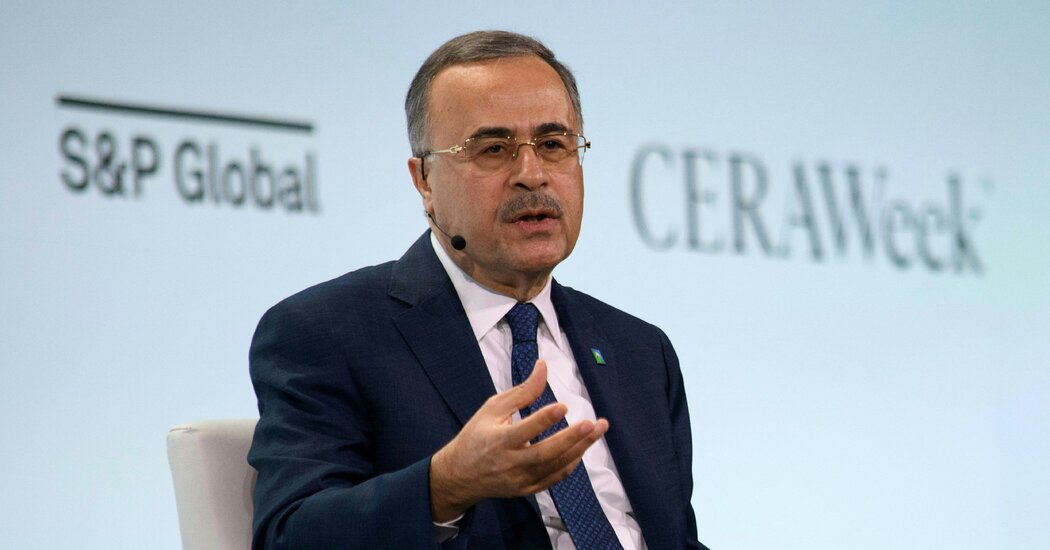The comments by a Saudi executive raised questions regarding whose predictions about the future of oil and gas are more likely to be true.
To some, it felt like the oil executive blurted the quiet part out loud.
“We should abandon the fantasy of phasing out oil and gas,” said Amin Nasser, head of what is, by far, the world’s biggest oil producer, Saudi Aramco.
The energy transition was “visibly failing,” he added, saying that predictions of impending peak oil and gas demand were flatly wrong. The room, full of representatives of the fossil-fuel industry at a conference in Houston, greeted the statement with applause.
Mr. Nasser’s comments spoke to the starkly divergent visions of what role fossil fuels will play in the global economy over the coming decades. The burning of fossil fuels is the main driver of climate change.
The oil industry maintains that their products, namely petroleum and natural gas, will play a dominant role for decades to come. And they are investing in new development, particularly in gas, with that in mind.
On the other hand, the International Energy Agency, regarded as one of the foremost authorities on that question, projects that oil and gas demand will peak by 2030 as renewable energy and electric vehicle sales grow exponentially, spurred by incentives and subsidies. Just a few months ago, at the biggest annual climate summit, negotiators from nearly all the world’s nations agreed to transition “away from fossil fuels.”
